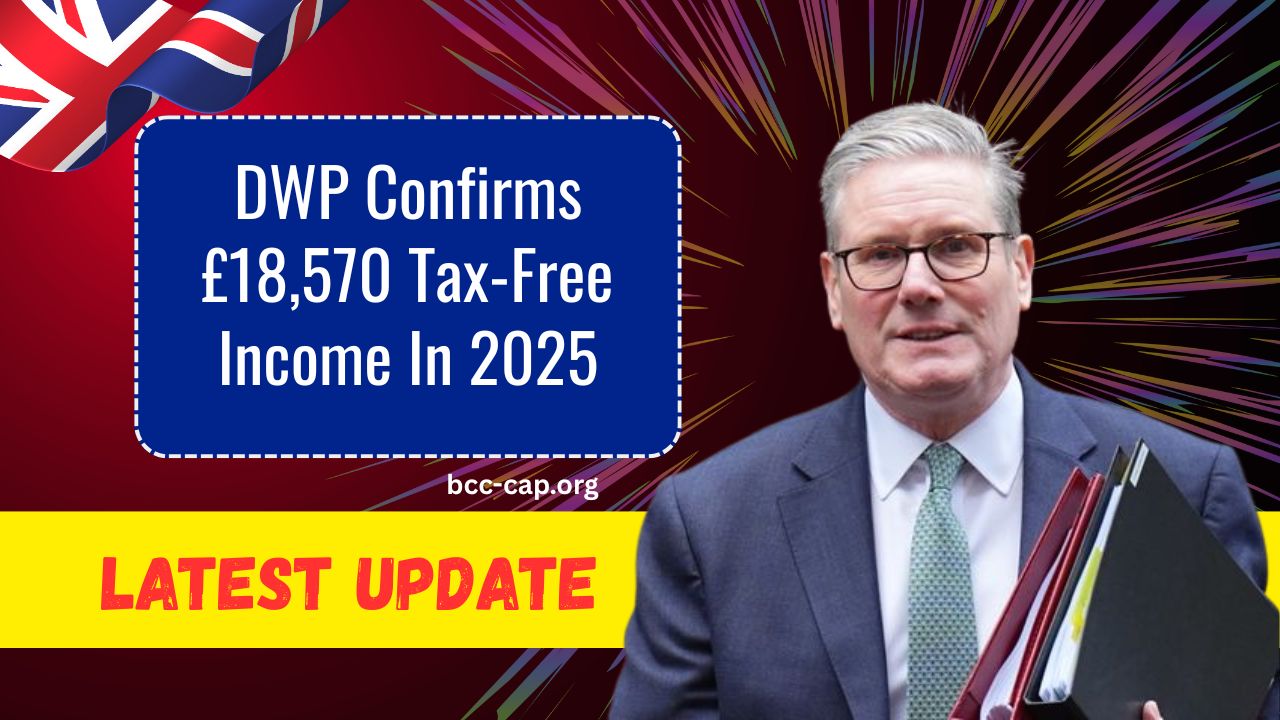Millions of UK residents can legally earn up to £18,570 tax-free during the 2025/26 tax year—no special applications needed.
This valuable combination of allowances from the DWP and HMRC benefits pensioners, savers, and low-income workers. Here’s how it works.
What’s the £18,570 Tax‑Free Threshold?
This total comprises three automatically applied allowances:
- Personal Allowance – £12,570
- Starting Rate for Savings – up to £5,000
- Personal Savings Allowance – £1,000
By stacking these, eligible individuals can earn up to £18,570 in income without paying any income tax.
Breakdown of Allowances
| Allowance | Amount | How It Works |
|---|---|---|
| Personal Allowance | £12,570 | Standard tax-free income applied by all and used before savings interest |
| Starting Rate for Savings | Up to £5,000 | 0% tax on savings interest if non‑savings income ≤ £12,570; tapers to zero at £17,570 |
| Personal Savings Allowance | £1,000 | Basic‑rate taxpayers receive this; higher‑rate gets £500; additional‑rate gets none |
How the Allowances Work Together
- Case A: Pensioner earning £10,000 + savings interest
They use full £12,570 personal allowance, qualify for full £5,000 starting rate, and the extra £1,000 PSA—total tax-free capacity of £18,570. - Case B: Income of £14,000 + savings interest
Excess income above £12,570 reduces the starting-rate savings. Here: £14,000 – £12,570 = £1,430; reducing starting rate to £3,570. They still get £1,000 PSA.
Who Qualifies?
You can make the most of the £18,570 tax-free threshold if you:
- Are a UK resident
- Have non‑savings income of £12,570 or less
- Are a basic-rate taxpayer
- Earn savings interest
This setup particularly benefits pensioners with savings, part-time workers, freelancers, students, and stay-at-home parents.
Smart Tips to Maximise Your Allowances
- Track income types: Separate pensions, earnings, and interest.
- Use an ISA: Up to £20,000 tax-free annually—on top of your £18,570 allowance .
- Plan as a couple: Each partner has separate allowances plus possible Marriage Allowance.
- Use HMRC tools: Use the government’s tax checker to confirm your allowances.
- Seek advice: A financial adviser helps if you have multiple income sources like dividends or rental income.
Summary Table
| Income Source | Threshold | Example Use |
|---|---|---|
| Personal Allowance | £12,570 | Covers salary, pension, rental, interest—tax-free |
| Starting Rate (Savings) | £5,000 | Applies if non-savings income ≤ £12,570; fully usable with low income |
| Personal Savings Allowance | £1,000 | Additional tax-free interest for basic‑rate taxpayers |
| Total Tax-Free | £18,570 | Combined automatic threshold for eligible individuals |
The £18,570 tax-free income opportunity in 2025/26 is fully legitimate and under-utilised. By understanding and combining the Personal Allowance, Starting Rate for Savings, and Personal Savings Allowance, many can keep more of their money, especially those with modest earnings and savings.
Don’t miss out—review your finances and claim what you’re entitled to automatically
FAQs
What is the £18,570 tax-free income?
It’s the total amount you can earn tax-free using three allowances: £12,570 Personal Allowance, up to £5,000 savings starting rate, and £1,000 PSA.
Who can benefit from the full amount?
Low-income earners, basic-rate taxpayers, savers with modest interest, pensioners, students, and part-time workers.
Do I need to apply?
No. The allowances are automatic—just ensure your HMRC tax code is correct and incomes are declared properly.
